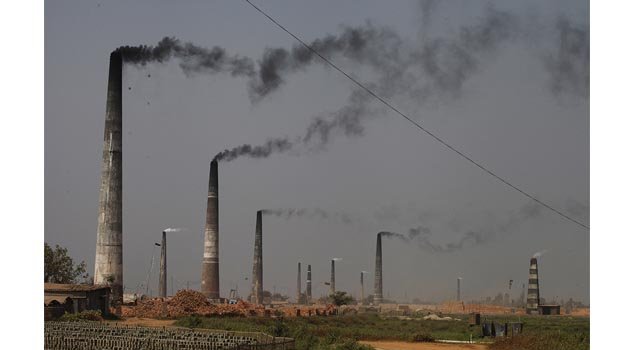Pollution recording uptrend again

Environmental pollution in Dhaka is increasing gradually amid the coronavirus (COVID-19) outbreak due to plastic and biomedical wastage.
Early in April, air pollution in the city decreased slightly as a result of ban on public transport. Besides, the River Buriganga is getting oxygen back.
Though public transport is not running, the pollution has increased now due to the increase in human movement.
The use of polythene, medical waste (tablet-capsule shells, saline, syringes, bandages, syrups), hand gloves, surgical masks, and hand sanitizers because of the virus, has increased a lot.
Apart from the Buriganga, Shitalakhya and Balu rivers, this garbage has caused severe pollution in and around Dhaka's canals and drains.
Asked about this, prominent environmentalist and water expert Ainun Nishat said, “Many new perceptions have come to us in the coronavirus situation. We must save nature for our survival. This lockdown has proven that the amount of industrial waste that mixes with the river every day is taking away the life of the river.”
He also said, “If the river does not survive, the environment will be endangered, human life will be endangered. Factory waste treatment plants must be environmentally modern.”
Experts say that the waste products mix with water, creating serious risk of coronavirus infection.
According to recent research of the Environment and Social Development Organization (ASDO), the country has produced 14,500 tonnes of plastic waste including masks and hand gloves, in just one month after the onset of corona symptoms.
Of this waste, 3,076 tonnes has been produced in Dhaka alone. A large part of the waste is mixed in the river water, which has created the risk of virus spreading in the water.
The Department of Environment has not taken any effective action to monitor and raise awareness on the management of riverside industries as well as about other waste management.
Therefore, experts urged the government to take more steps to prevent river pollution and infection.
According to the study of ESDO, 5,796 tonnes of polythene bag waste, 3,039 tonnes of polythene hand-gloves, 2,838 tonnes of surgical hand-gloves, 1,592 tonnes of surgical masks and 900 tonnes of plastic waste from hand sanitizer bottles were used from March 26 to April 25 in the country.
During this time, 1,314 tonnes of surgical hand gloves, 602 tonnes of polythene hand gloves, 448 tonnes of surgical masks, 443 tons of polythene bags and 270 tonnes of waste from hand sanitizer bottles were produced in Dhaka area alone. These wastes can spread serious infection by mixing with water and environment as well.
Ziaul Haque, director (environment) of the department of environment said that government agencies were struggling to manage waste.
He said, “People have to cooperate with the government by not throwing this garbage everywhere. Otherwise, it will take a more serious turn.”
However, the Department of Environment is giving much more importance to waste management.
Toxic waste is constantly being dumped on both sides of the river Buriganga from Sadarghat to Narayanganj.
According to the Department of Environment, 3,500 cubic meters of industrial waste and 2,700 cubic meters of contaminated liquid waste are mixed in the Buriganga every day.
Environmentalists say the Buriganga water has long since been poisoned by the capital's sewage and household waste, and 62 types of chemical waste.
The river bed is filled with a thick layer of polythene and river water is mixing with hospital waste. Besides, various wastes generated during the coronavirus period are being added to it.



